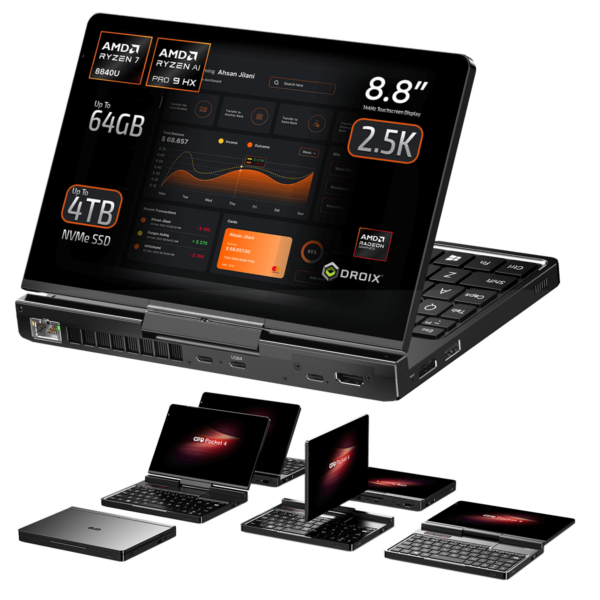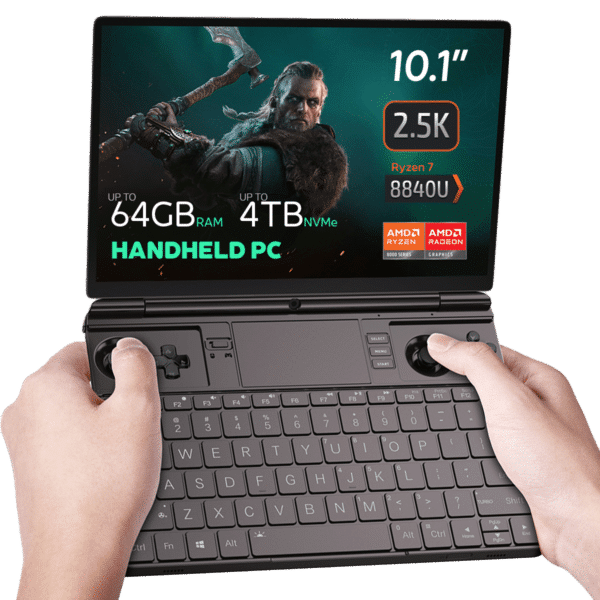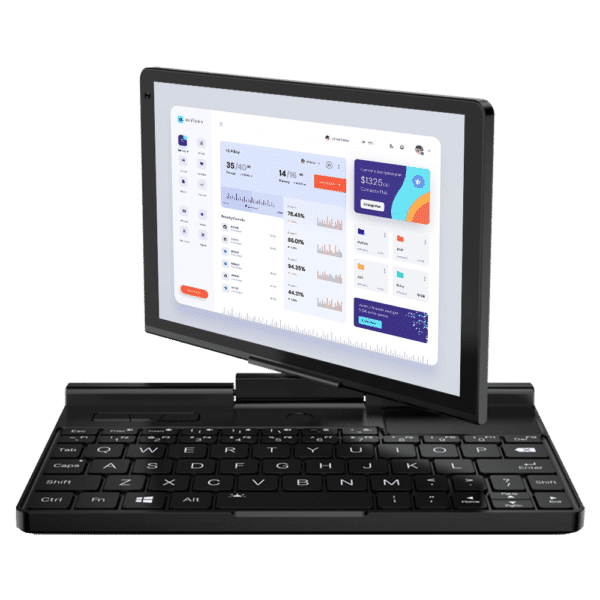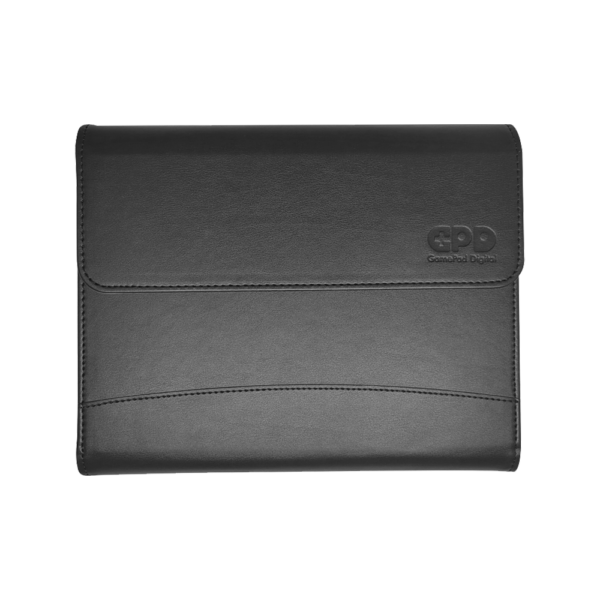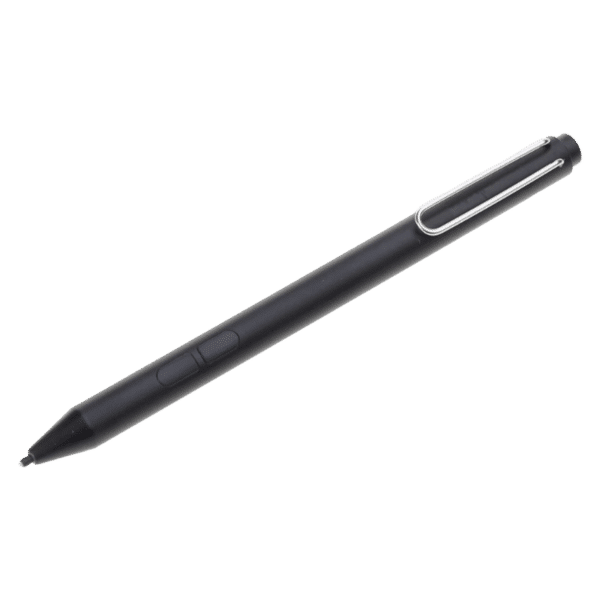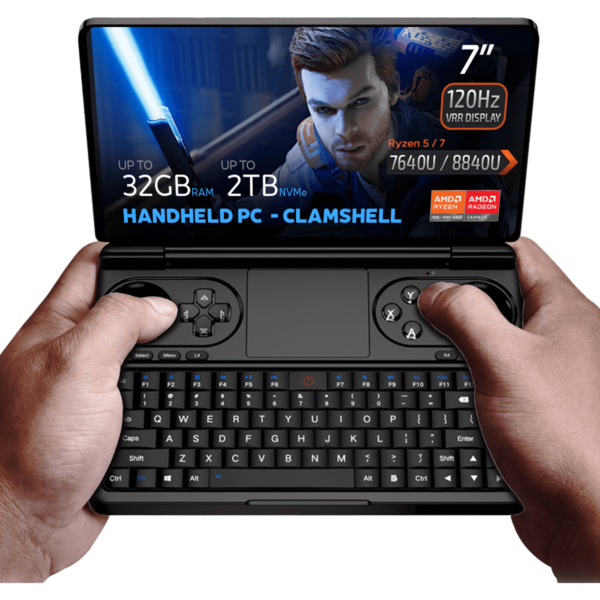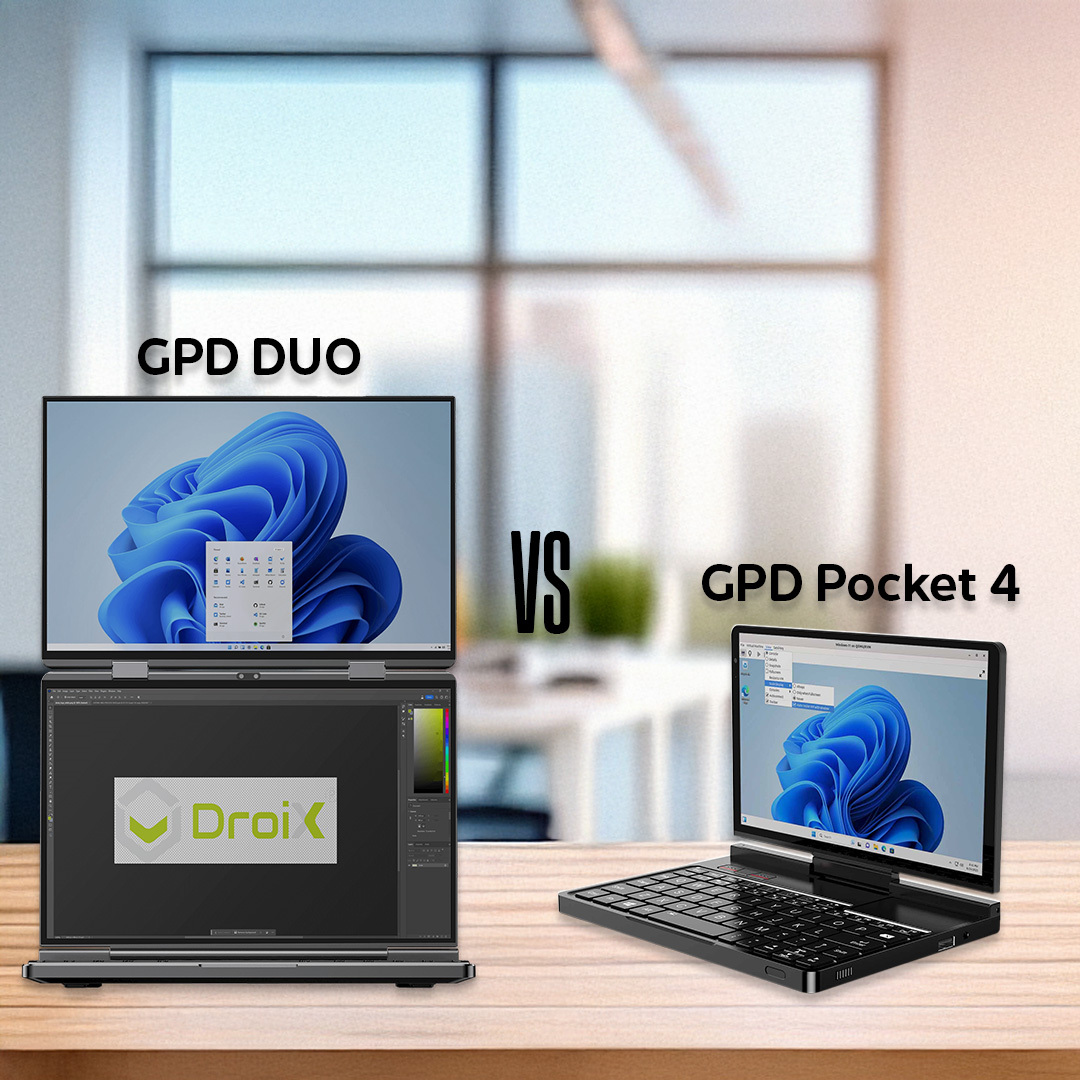
GPD Pocket 4 vs GPD DUO: Which is Right for You?
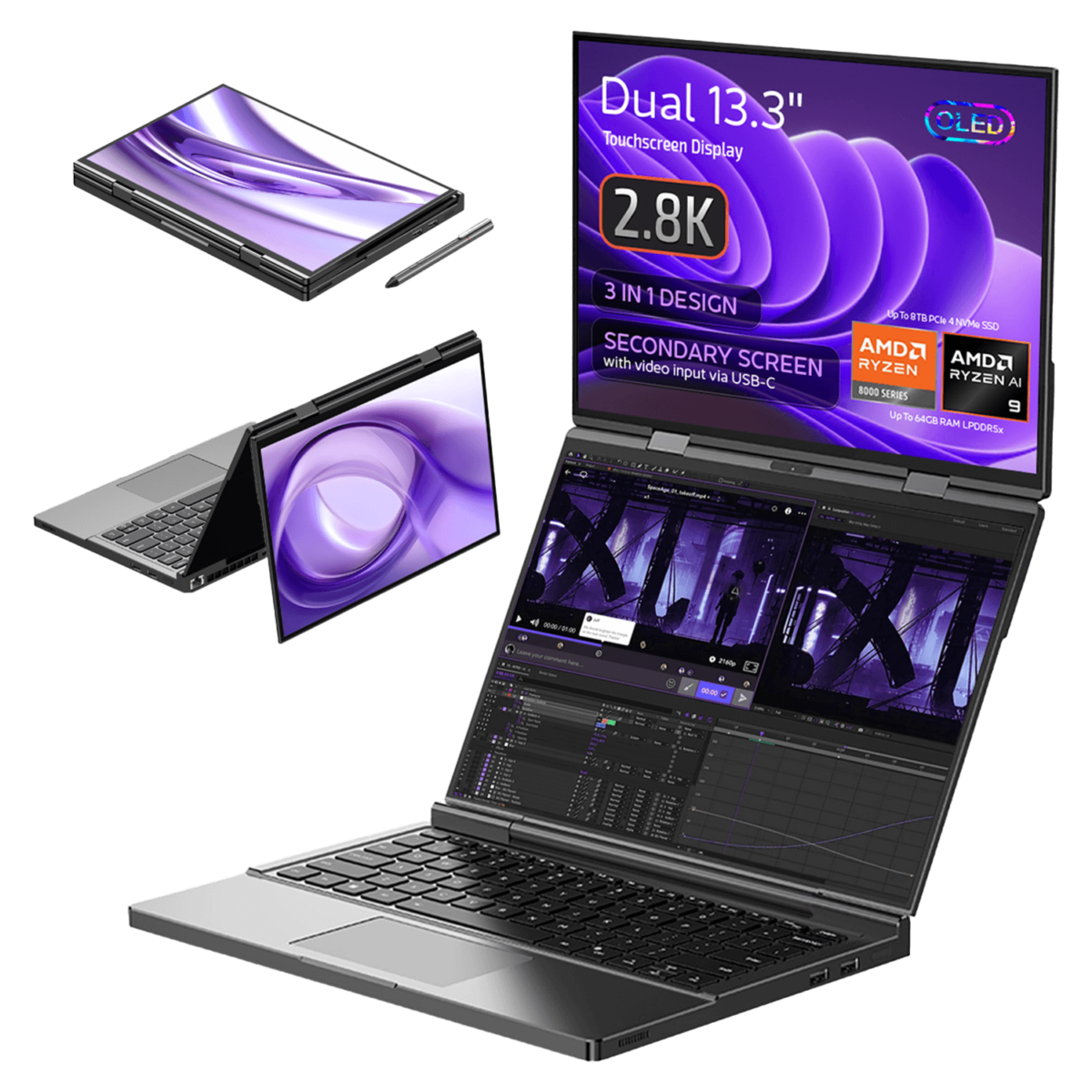
GPD DUO
Portable computing has reached new heights with the GPD Pocket 4 and GPD Duo, two innovative devices catering to professionals, students, and tech enthusiasts alike. These devices combine exceptional performance with ground-breaking designs in ultra-portable packages. But which one is the better fit for your needs? In this in-depth GPD Pocket 4 vs GPD Duo comparison, we’ll explore their unique strengths and how they excel in areas like productivity, creativity, work, and leisure.
Size and Weight: Compact Portability Compared
Portability is crucial for users who rely on their devices for both work and leisure. The GPD Pocket 4 is a small-sized laptop, measuring 8.14 x 5.6 x 0.87 inches (20.68 × 14.45 × 2.22 cm) and weighing only 785g (1.7 lbs). Slightly larger and heavier than its predecessor, the Pocket 3, it remains compact enough to slip into a small bag. This lightweight laptop is ideal for students needing a reliable, ultra-portable notebook for taking notes or professionals seeking a mini laptop for business meetings and travel.
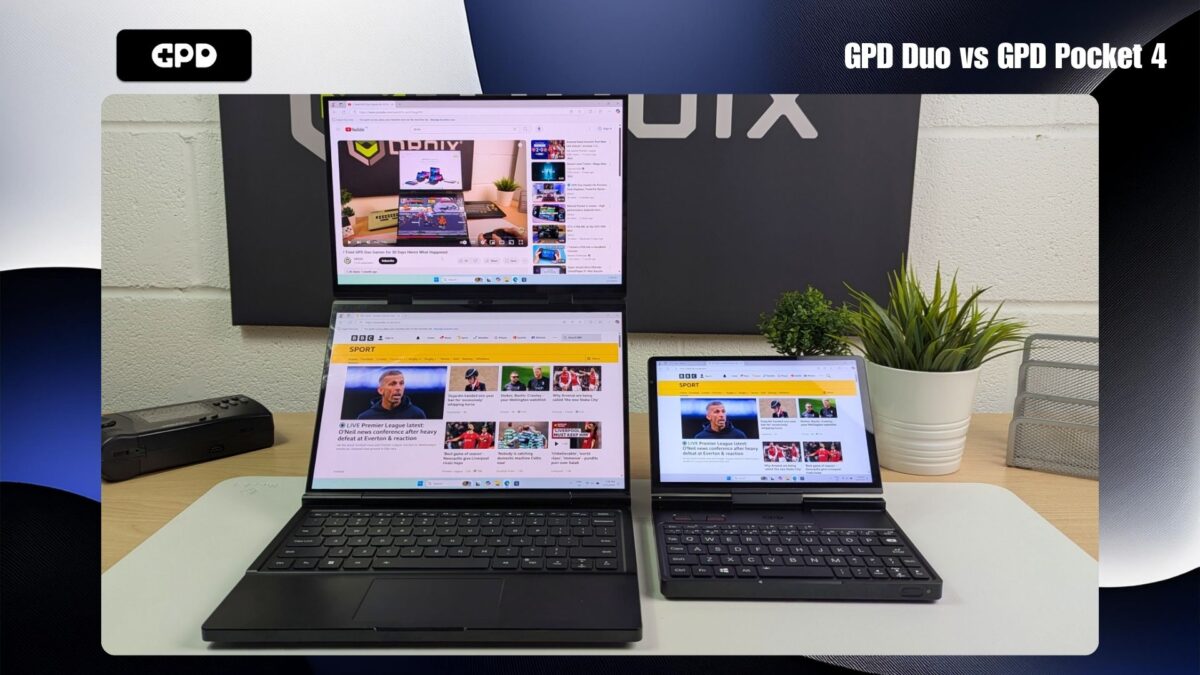
The GPD Duo, by comparison, is a bit bulkier due to its dual display laptop design. At 11.6 x 8.2 x 0.9 inches (29.7 × 20.9 × 2.3 cm) and weighing 2.27 kg (5 lbs), it’s heavier, but the added weight comes with enhanced multitasking capabilities. While still portable, it’s better suited for creatives and professionals prioritizing functionality over extreme portability. Whether working on presentations or tackling creative projects, the Duo strikes a balance between mobility and utility.
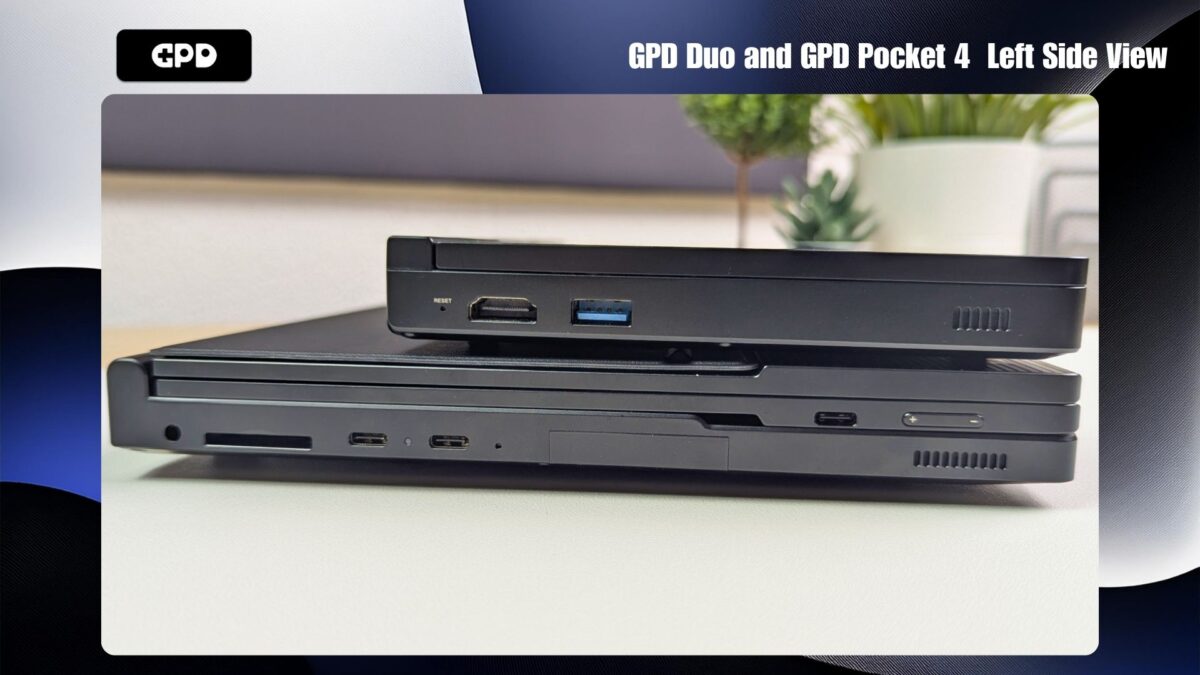
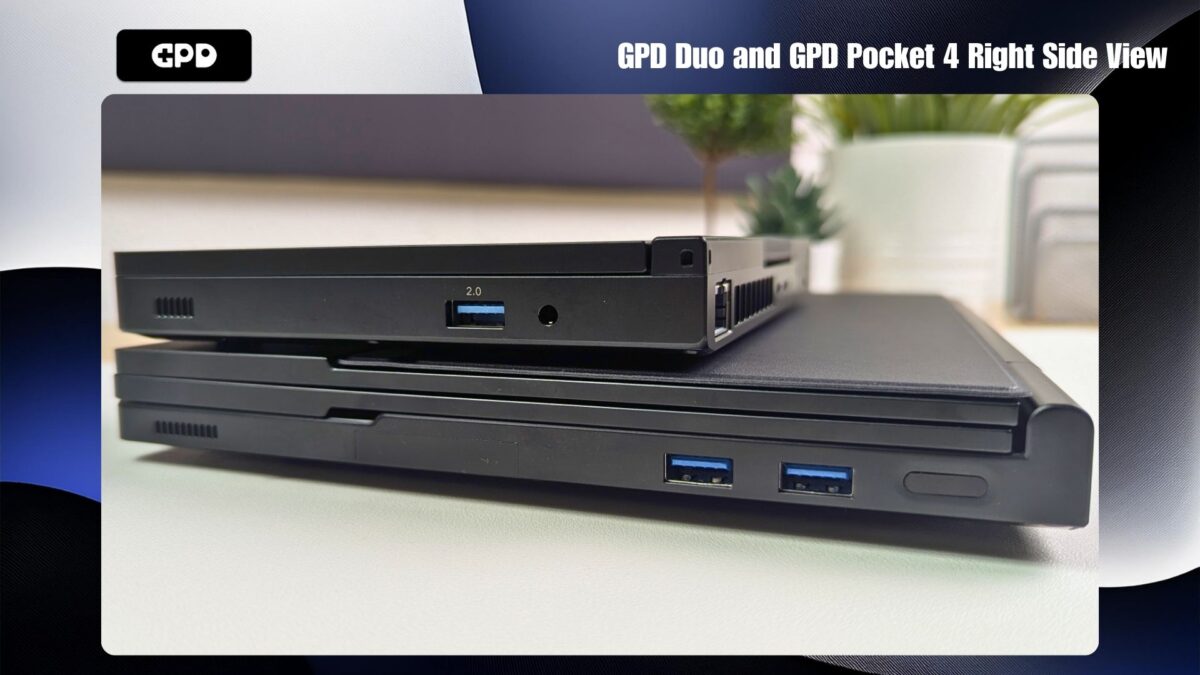
Display: A Visual Powerhouse for Different Needs
The GPD Pocket 4 features an 8.8-inch touchscreen with a sharp 2560×1600 resolution and a 144Hz refresh rate. This high refresh rate ensures smooth visuals, whether scrolling through documents or watching videos. While its support for a capacitive stylus limits its use for digital artists, it’s a perfect fit for note-takers and students. The vibrant display also excels for media consumption, casual gaming, or working on visually intensive tasks.
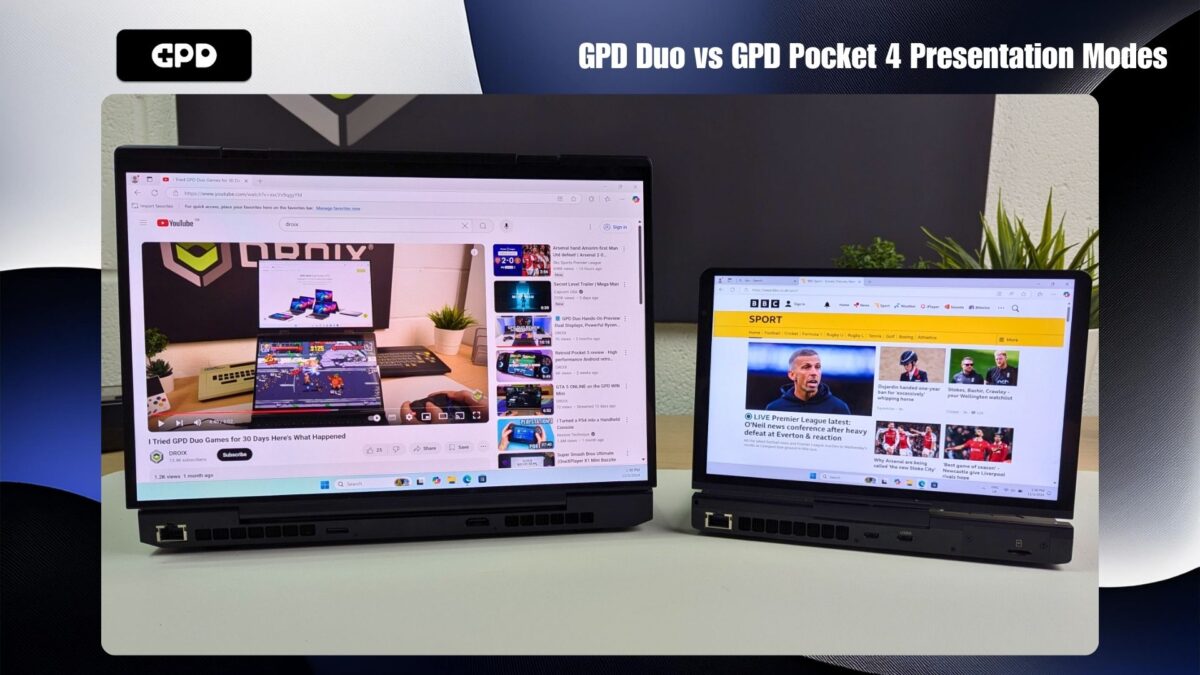
The GPD Duo, on the other hand, offers a unique experience with its dual screen laptop setup. Both 13.3-inch displays boast a 2800×1800 resolution at 60Hz, providing stunning visuals across a larger workspace. Active stylus compatibility allows precise sketching, annotating, or designing, making it an excellent choice for designers and content creators. The secondary display enhances productivity, whether you’re using it for reference material, emails, or tool palettes.
While both models deliver excellent display quality, their strengths differ. The Pocket 4 is optimized for immersive visuals and a higher refresh rate, while the Duo is the go-to choice for dual display laptop functionality, tailored for multitaskers and creatives.
Design: 2-in-1 Versatility vs. Dual-Screen Innovation
The GPD Pocket 4 boasts a 2-in-1 laptop and tablet design, enabling users to rotate the display 180 degrees to transition seamlessly between modes. This versatility is invaluable for users who alternate between typing, presenting, and touch-based interactions. Whether sketching diagrams in tablet mode or delivering presentations, this ultra-portable notebook adapts to various tasks with ease.
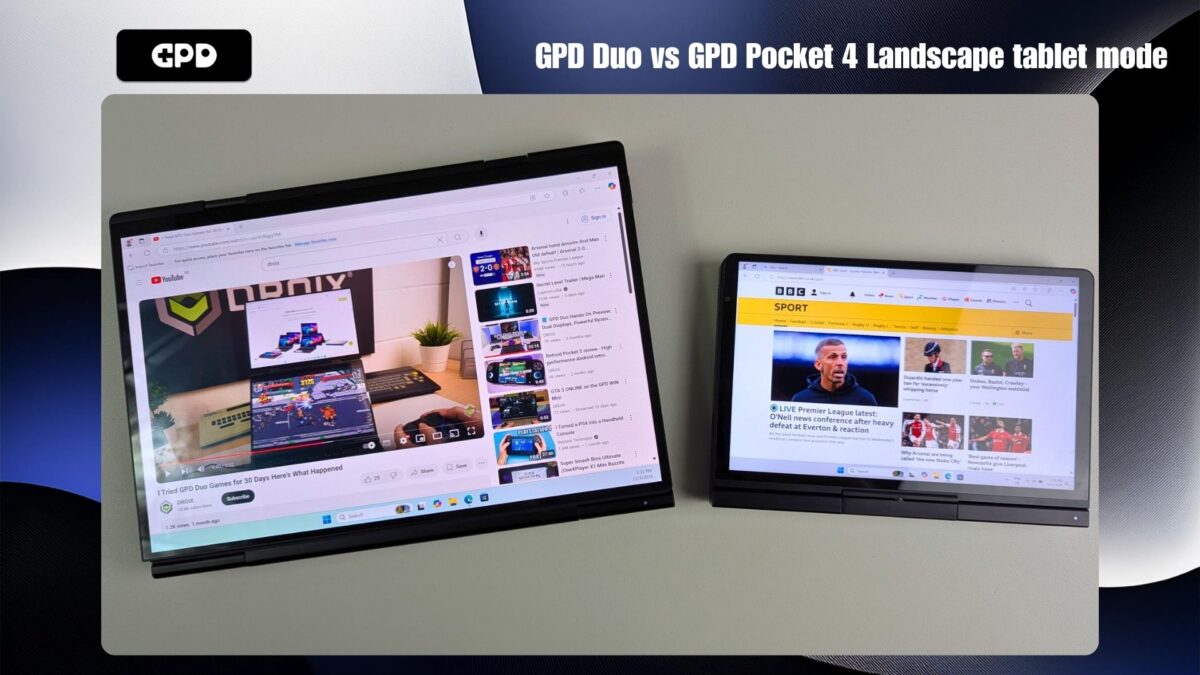
In contrast, the GPD Duo focuses on innovation with its dual screen laptop design. The second screen revolutionizes workflows, enabling users to manage complex tasks more efficiently. For instance, video editors can display timelines on the secondary screen while previewing their project on the primary one. Coders and writers can also benefit from having reference materials or notes visible alongside their main work. While the Duo can fold into a tablet-style layout, its weight makes it less comfortable for extended handheld use compared to the Pocket 4.
Keyboard: Usability in Any Scenario
The GPD Pocket 4 offers a compact yet functional chiclet keyboard. Backlit and responsive, it’s ideal for extended typing sessions, making it perfect for students writing essays, professionals drafting reports, or anyone needing a lightweight laptop for mobile productivity. Its tactile feedback ensures comfortable use, even during long hours.
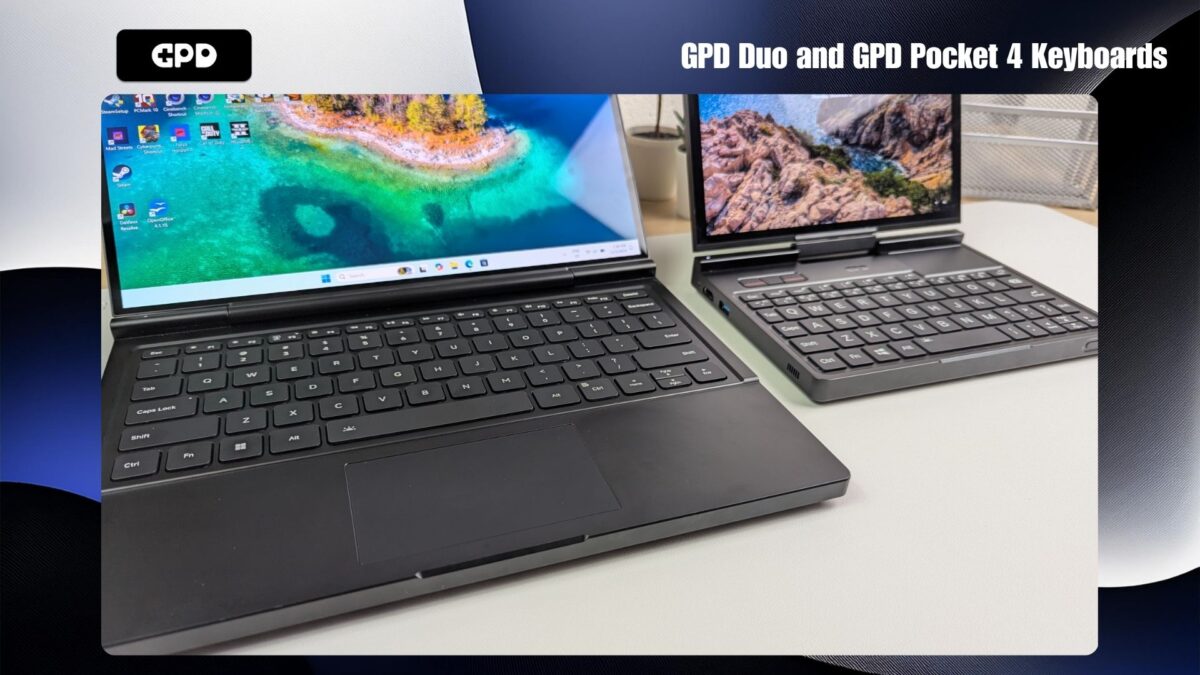
Meanwhile, the GPD Duo features a full-size laptop keyboard that provides a typing experience akin to traditional laptops. The larger key spacing and layout make it well-suited for users who frequently work with text, such as writers, editors, or business professionals. Combined with its dual-screen setup, the Duo’s keyboard enhances productivity, providing a familiar and efficient input method for multitasking-heavy workflows.
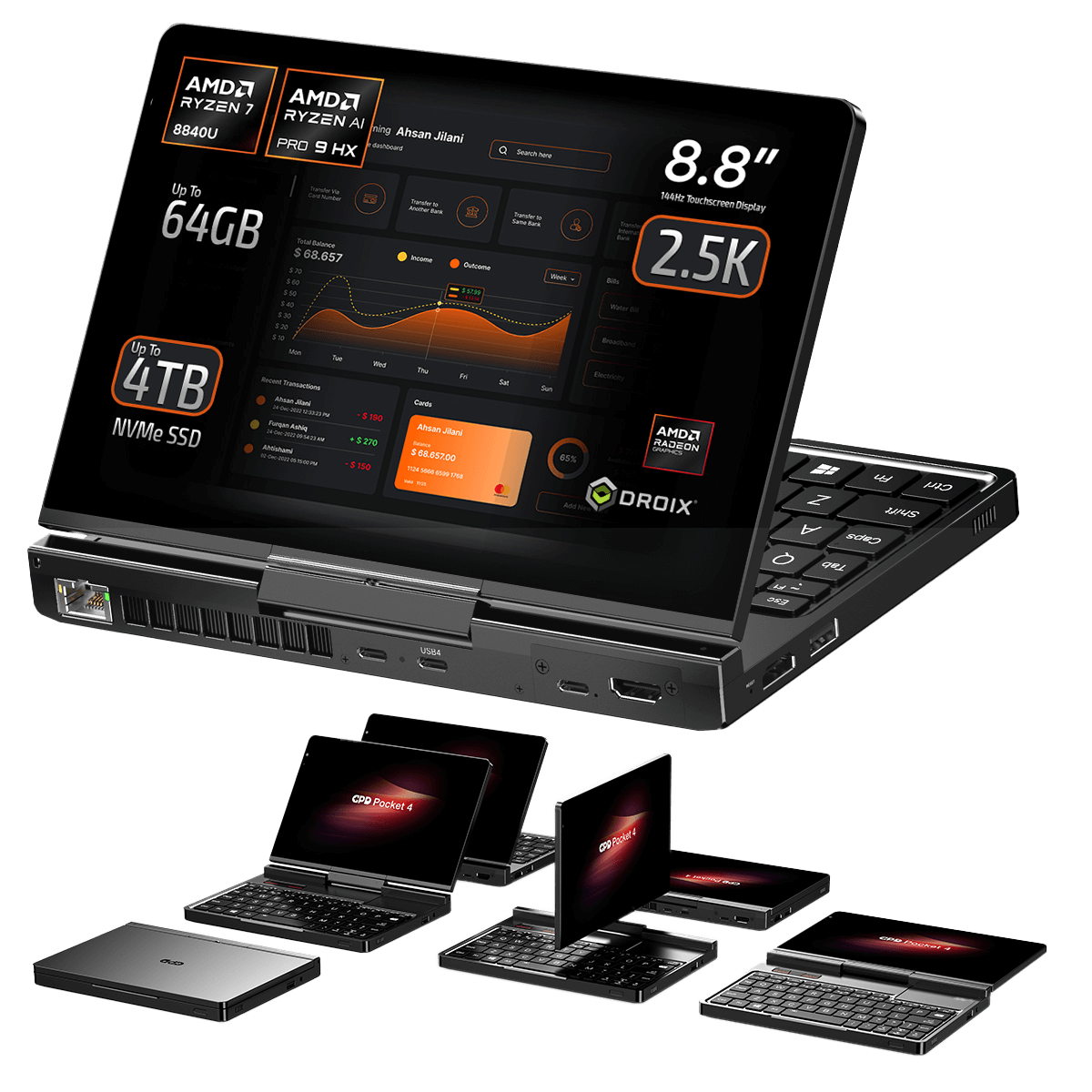
GPD Pocket 4 Mini Laptop
GPD Pocket 4 vs GPD Duo Technical Specifications
| GPD DUO | GPD POCKET 4 | |
| CPU | AMD Ryzen 7 8840U AMD Ryzen AI 9 HX 370 | AMD Ryzen 7 8840U AMD Ryzen AI 9 HX 365 AMD Ryzen AI 9 HX 370 |
| GPU | (8840U) AMD Radeon 780M (HX 370) AMD Radeon 890M | (8840U) AMD Radeon 780M (HX 365) AMD Radeon 880M (HX 370) AMD Radeon 890M |
| RAM | 32GB, 64GB LPDDR5X 7500 MT/s | 16GB, 32GB, 64GB LPDDR5X 7500 MT/s |
| STORAGE | 1TB, 2TB, 4TB, 8TB NVMe PCI-E Gen 4.0 | 1TB, 2TB, 4TB NVMe PCI-E Gen 4.0 |
| COMMUNICATIONS | Wi-Fi 6E Bluetooth 5.3 2.5 Gbps Ethernet | Wi-Fi 6E Bluetooth 5.3 2.5 Gbps Ethernet |
| DISPLAY | 2x 13.3″, 2880×1800, 60Hz, 255 PPI | 8.8″, 2560×1600, 144Hz, 343 PPI, 500 nits |
| I/O | 1x USB 4.0 Type-C 1x USB Type-C 2x USB Type-A 3.2 Gen 2 | 1x USB 4.0 Type-C 1x USB Type-C 1x USB Type-A 2.0 1x USB Type-A 3.2 Gen 2 |
| BATTERY | 80Wh Li-po | 44.8Wh Li-po |
| BUY | HERE | HERE |
Performance: Power Tailored to Your Needs
The following benchmarks were conducted on pre-production models of both devices. Final consumer models may feature improved performance due to optimized drivers.
PCMARK
The Duo holds a slight edge over the Pocket 4, though the difference isn’t significant.
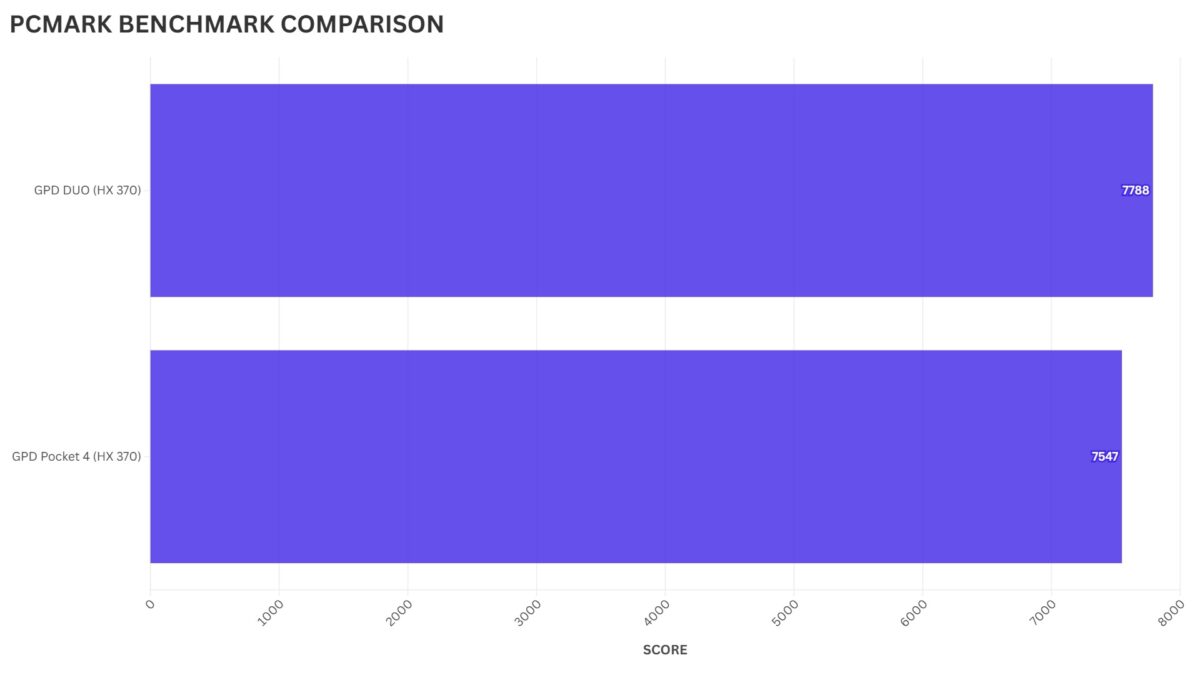
GEEKBENCH 6
Both devices scored nearly identically, showcasing strong single-core and multi-core performance.
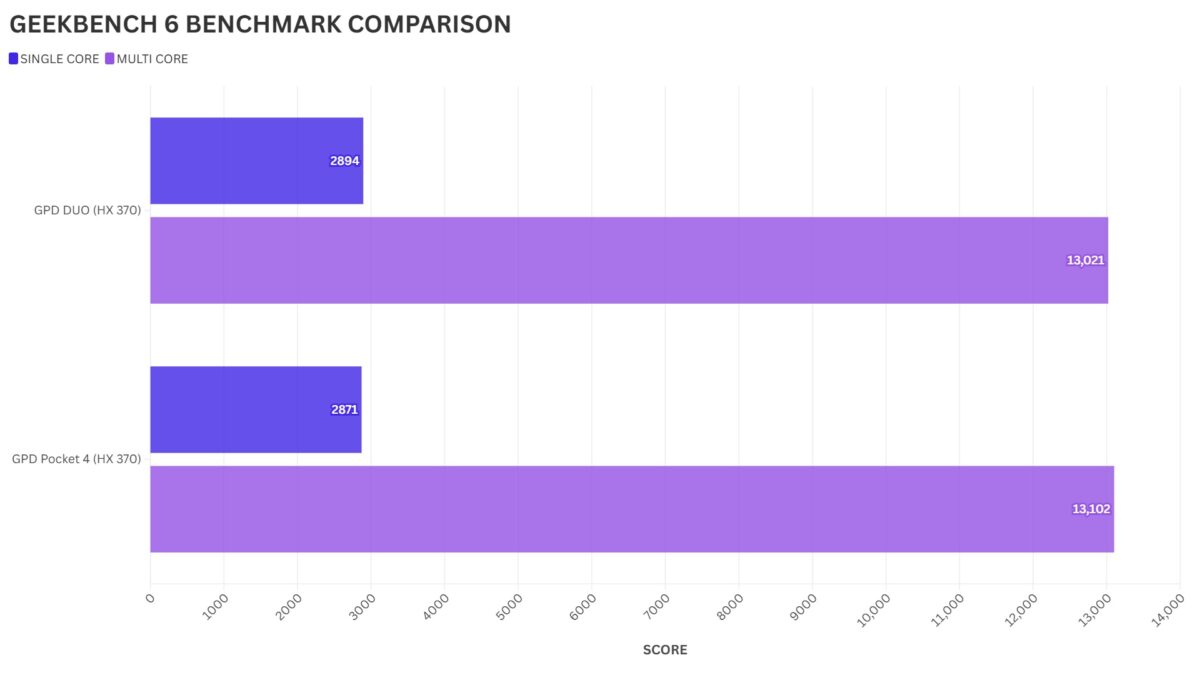
Cinebench 2024
The Duo demonstrated noticeably higher multi-core performance.
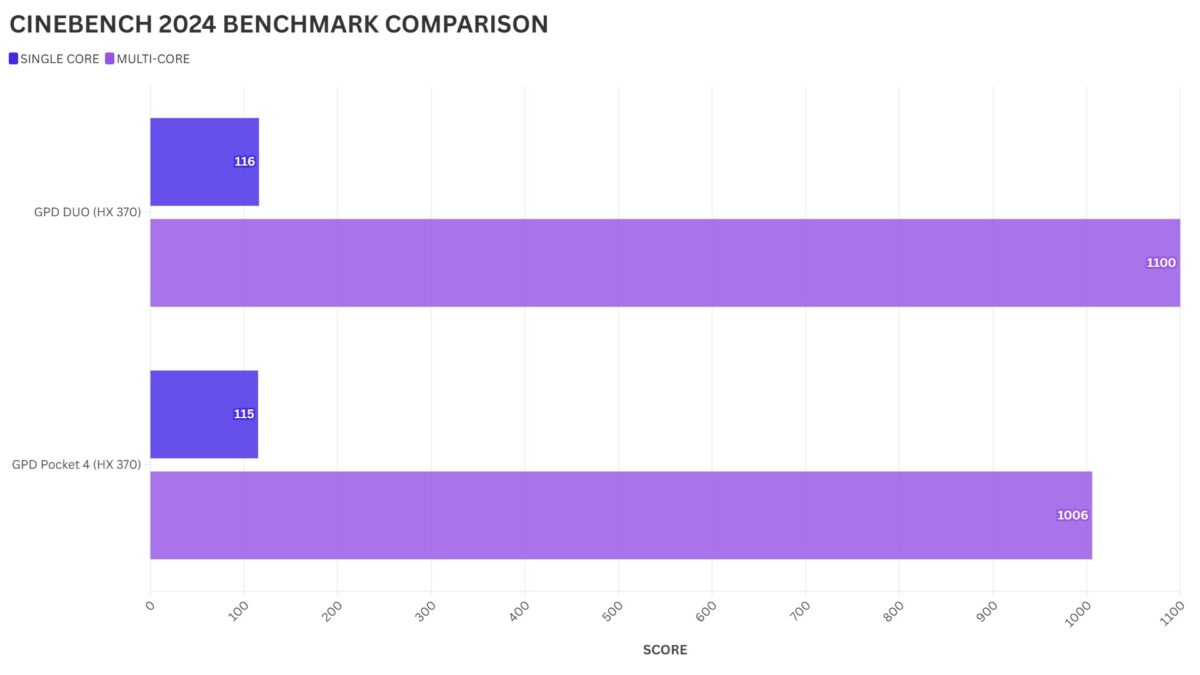
3DMARK
Across benchmarks like Time Spy and Night Raid, the Duo and Pocket 4 performed similarly, with marginal differences in Fire Strike.
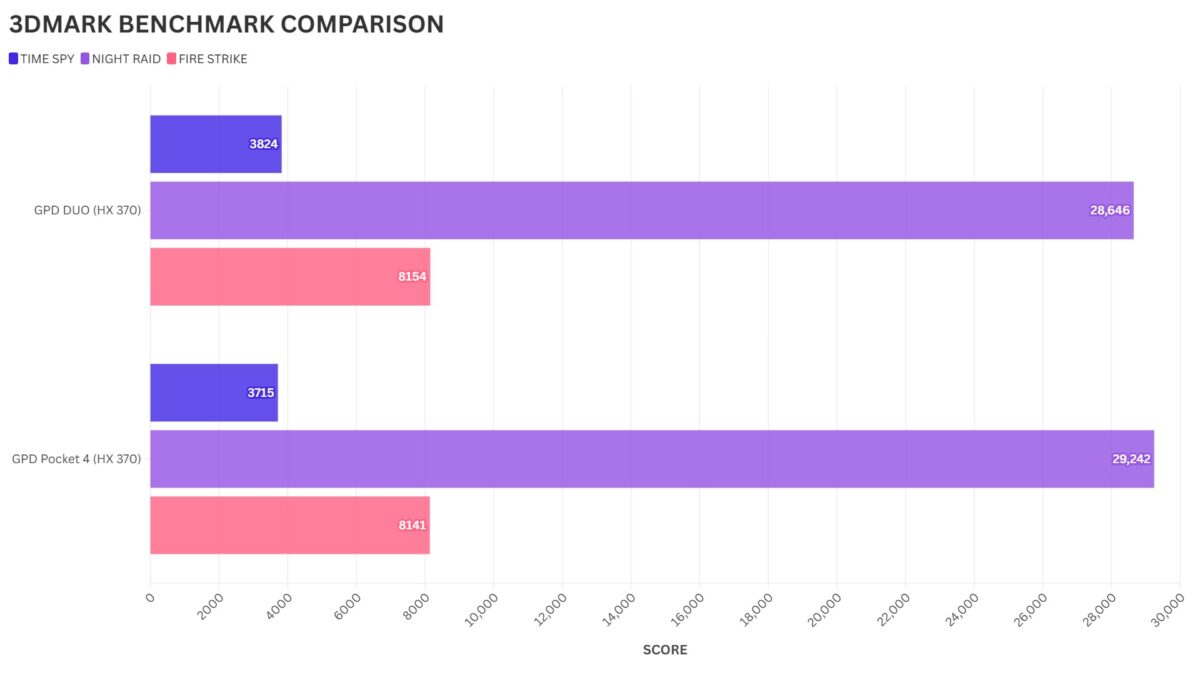
Battery Life, Fan Noise, and Thermals
Both devices underwent battery life, fan noise, and thermal tests under the same conditions: full brightness, 28W TDP, with Cinebench running on loop.
The GPD Pocket 4 has a 45Wh battery, lasting 1 hour and 1 minute under heavy load, with about 5 hours of average usage. While idle, fan noise was barely audible at 45dB, increasing to 67dB under load. Average temperatures hovered around 49°C, though the pre-production fan curve was notably aggressive and expected to improve in the final release.
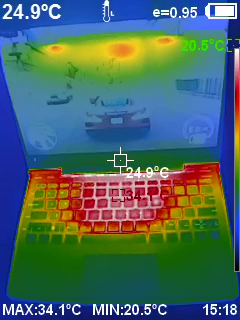
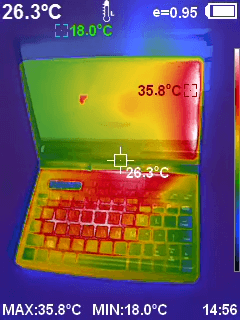
The GPD Duo benefits from an 80Wh battery, offering 1 hour and 45 minutes of runtime with both screens active and up to 2 hours and 15 minutes with one display. Average usage stretches to 6-7 hours. Fans were quieter at 55dB during average use, with temperatures averaging 50°C.
Ports and Connectivity: Modular Versatility vs. Standard Simplicity
Both models offer the standard ports, including USB 4, USB-C, USB-A, HDMI, and a 3.5mm audio jack.
The GPD Pocket 4 leads in innovation with its modular port system, allowing users to swap in modules from the included Micro SD reader to a 4G LTE module, KVM module or RS-232 module. This makes it an industry mini laptop perfect for specialized tasks. Learn more about it on our GPD Pocket 4 modular port article.
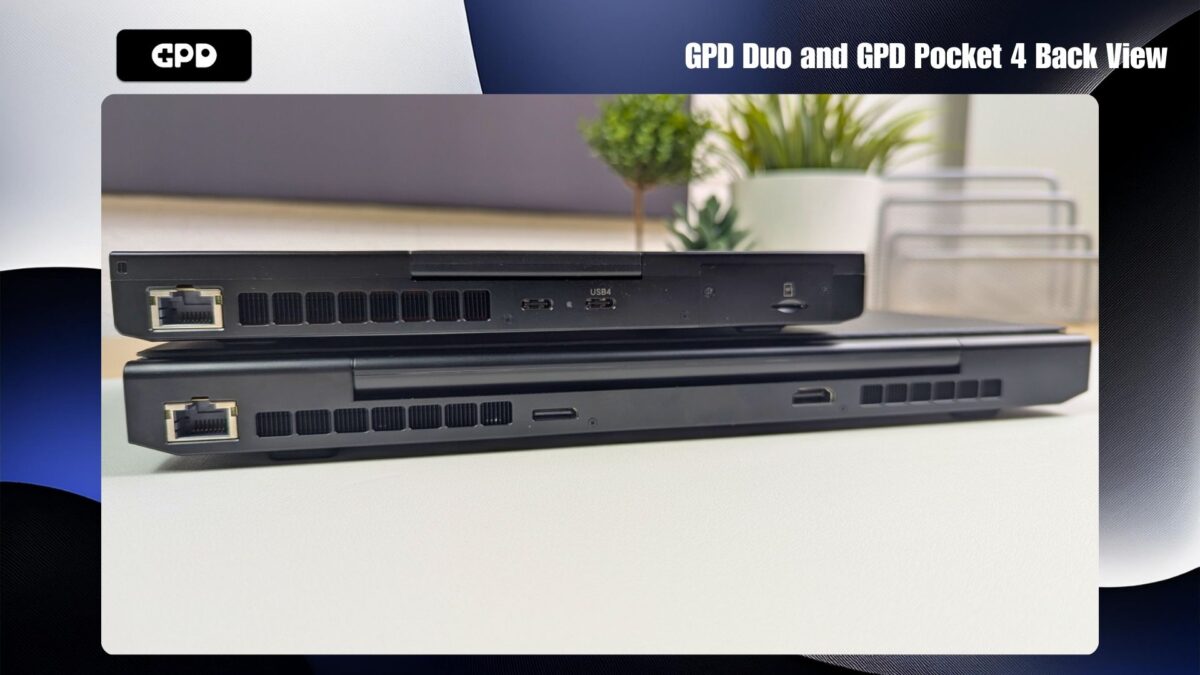
The GPD Duo, while lacking modular options, includes an OCuLink port for high-speed data connections, offering faster performance with peripherals like the GPD G1 eGPU docking station. Its streamlined connectivity suits professionals who prioritize ease of use.
AI Capabilities and Graphics Performance
Both devices feature the AMD Ryzen AI 9 HX 370 processor with XDNA 2 technology, enabling advanced machine learning, real-time data processing, and intelligent automation. Key benefits include AI-accelerated workflows, support for large AI models with up to 16GB of GPU-dedicated memory, and compatibility with cutting-edge AI applications.
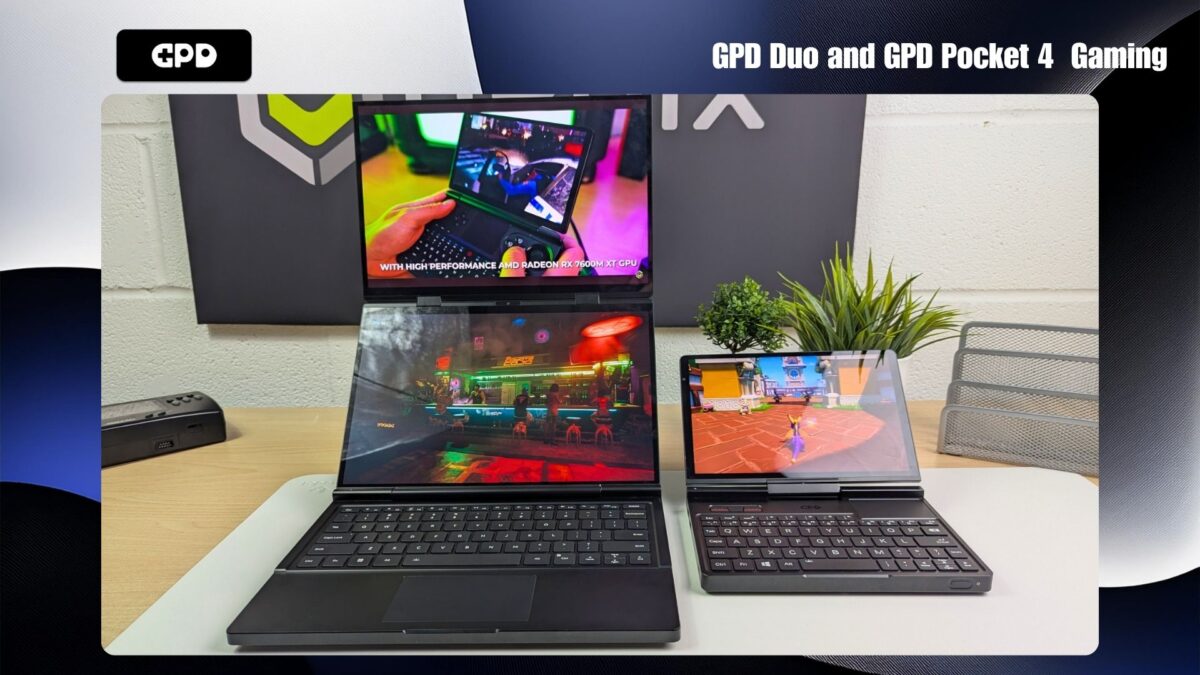
When paired with the optional GPD G1 eGPU docking station, both devices achieve 108 TOPS of AI performance, enhancing capabilities for resource-intensive tasks. While not gaming laptops, they handle modern games at reasonable settings, running titles like Forza Horizon 5 at 1080p High with FSR for smooth 60+ FPS gameplay.
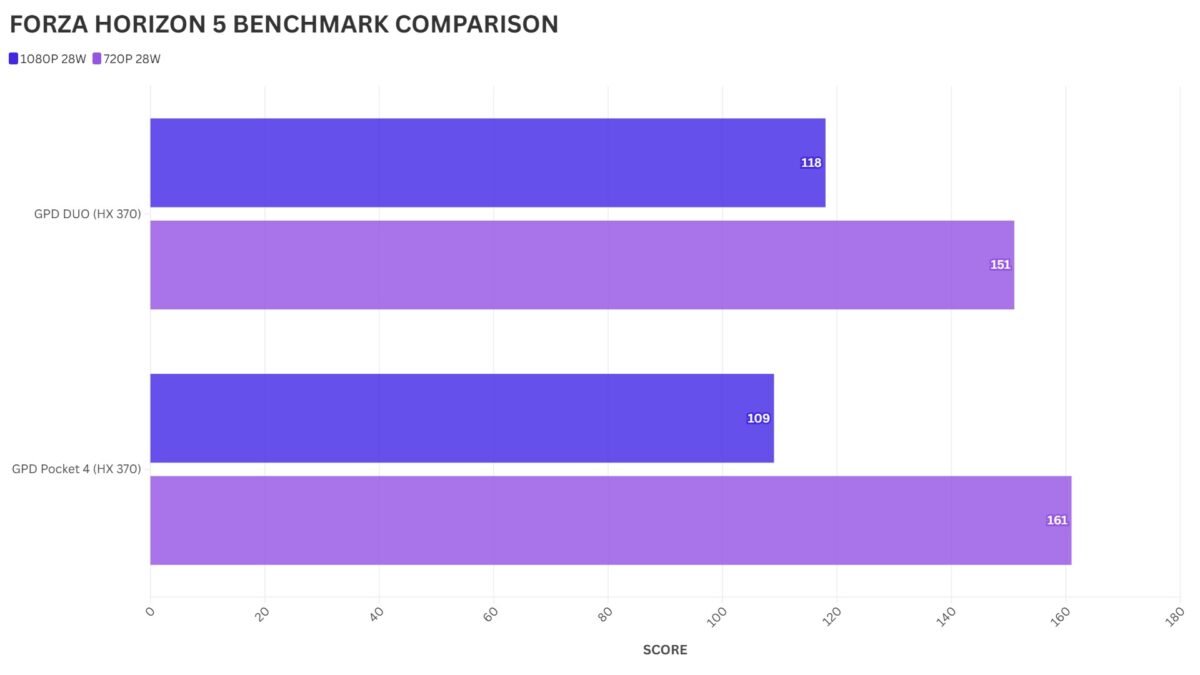
External Monitor Support
Both devices support up to three external monitors such as the DROIX PM14 portable monitor via HDMI and USB-C ports, a valuable feature for multitasking professionals. The GPD Duo adds an edge with its built-in second display, bringing the total to five active screens for those needing expansive workspaces.
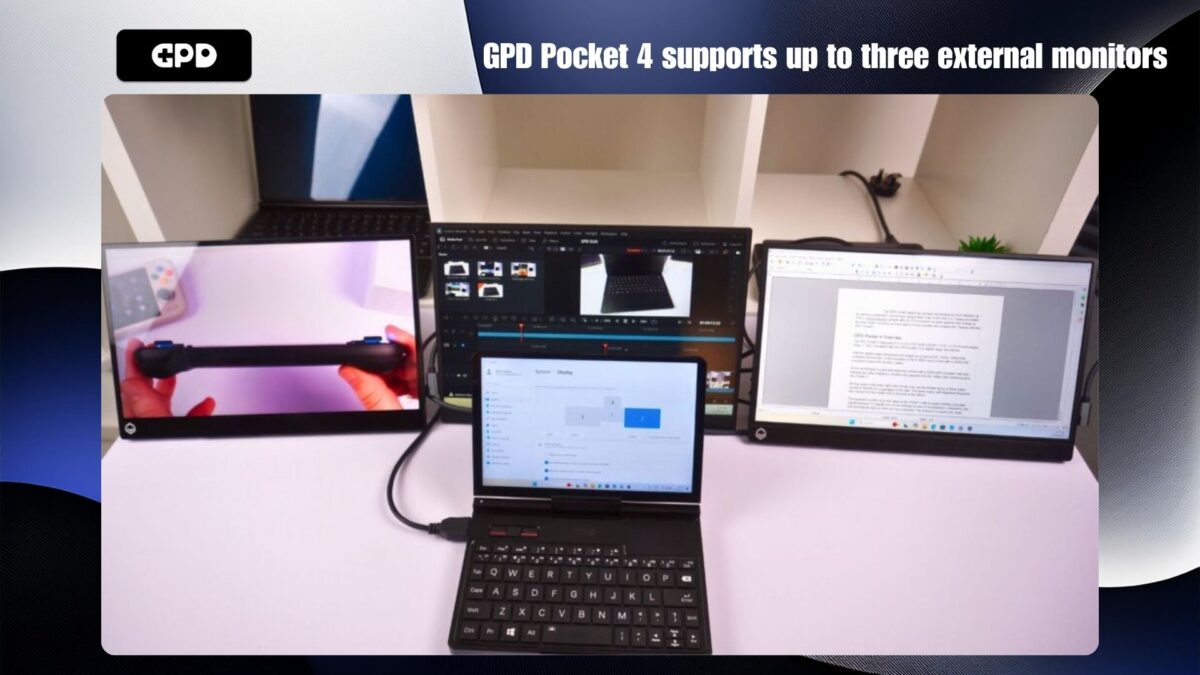
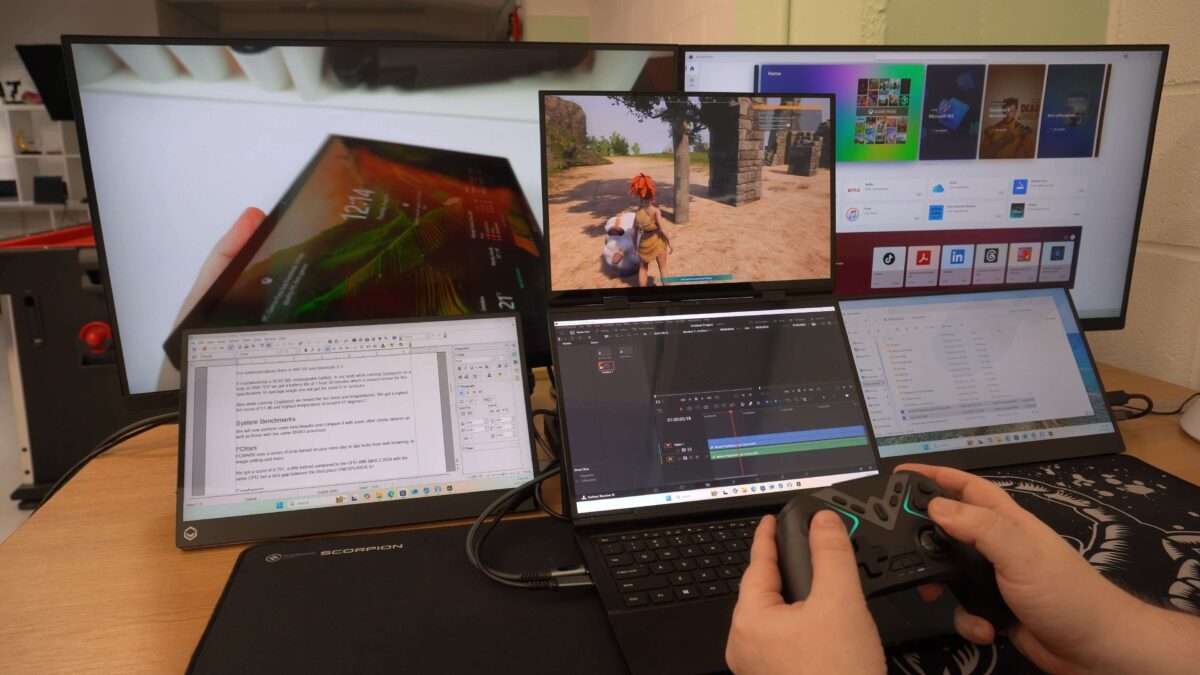
Summary: Which Should You Choose?
Choosing between the GPD Pocket 4 vs GPD Duo depends on your priorities. The GPD Pocket 4, with its high refresh rate and modular port system, is an excellent ultra-portable notebook for students, professionals, and industry use. You can read our in-depth preview of the GPD Pocket 4 here.
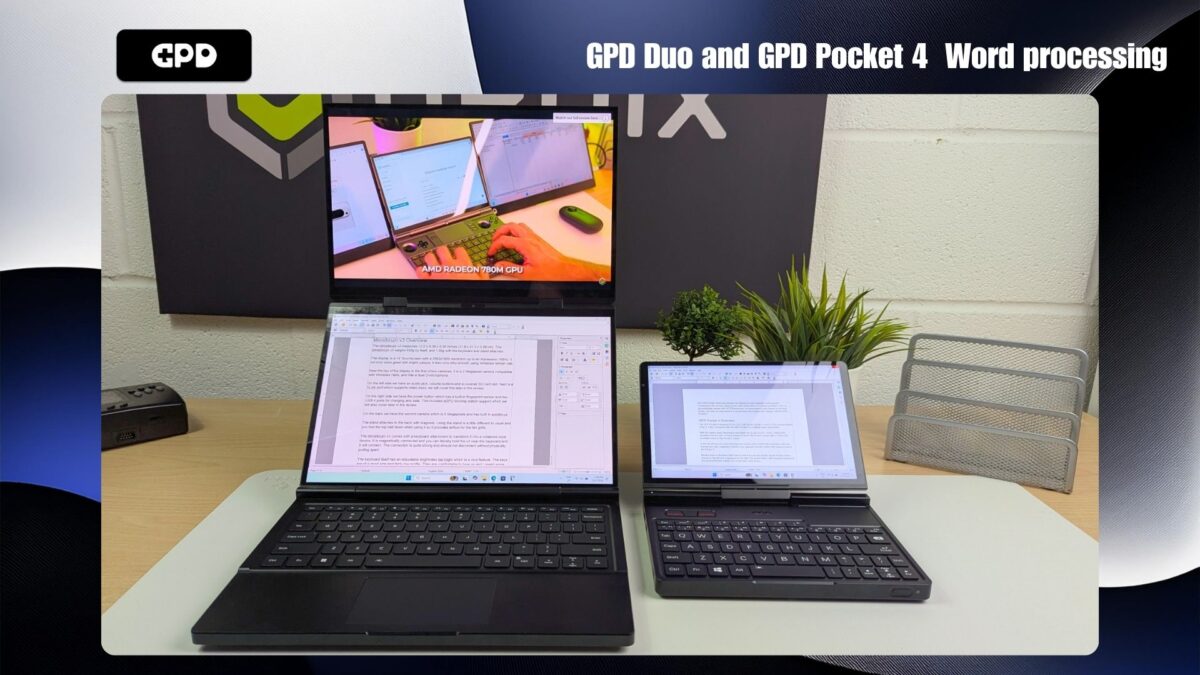
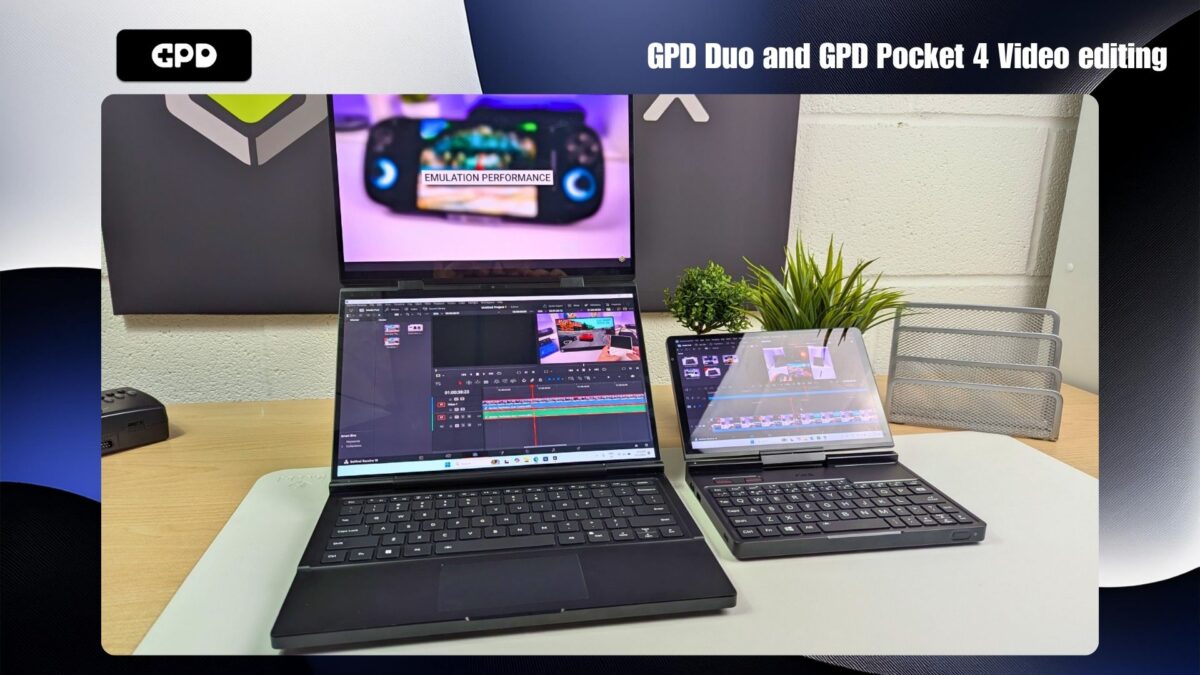
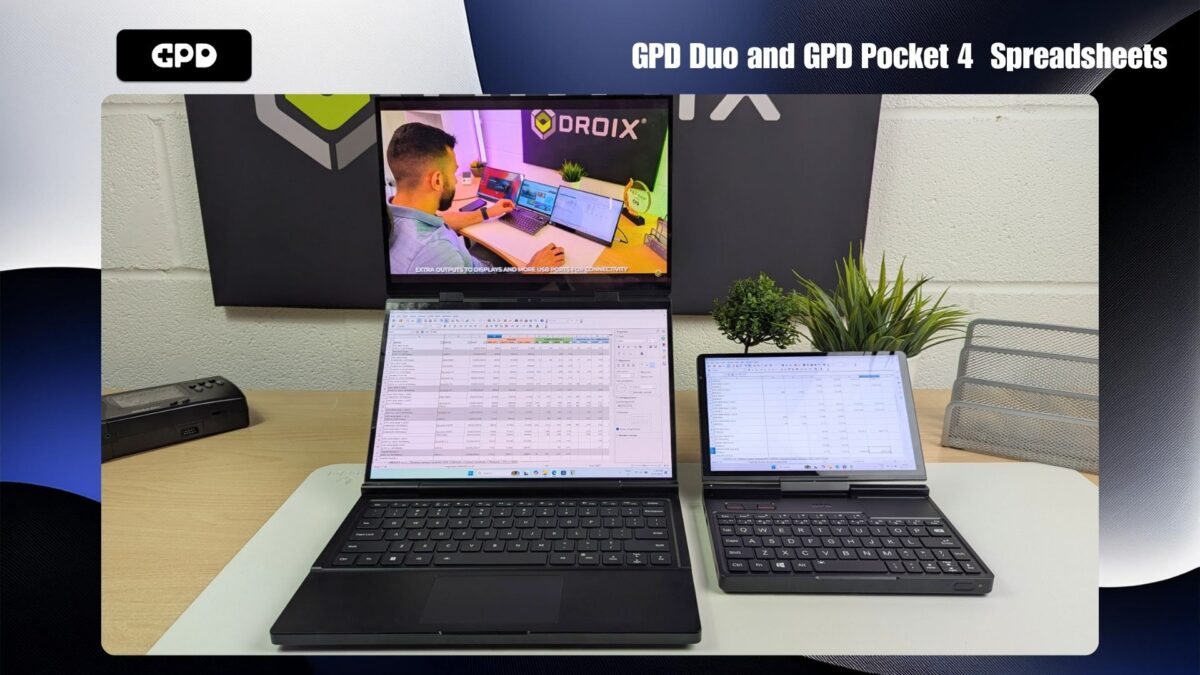
Meanwhile, the GPD Duo, with its dual-screen design, active stylus support, and multitasking capabilities, is a powerful dual display laptop perfect for creatives, educators, and productivity enthusiasts. You can read our GPD Duo review here.
Conclusion: Let Us Know Your Choice
Both devices offer unique strengths. The GPD Pocket 4 vs GPD Duo decision ultimately comes down to your specific needs. Which one do you think suits your lifestyle best? Share your thoughts in the comments below and let us know how you plan to use your next GPD mini laptop!

